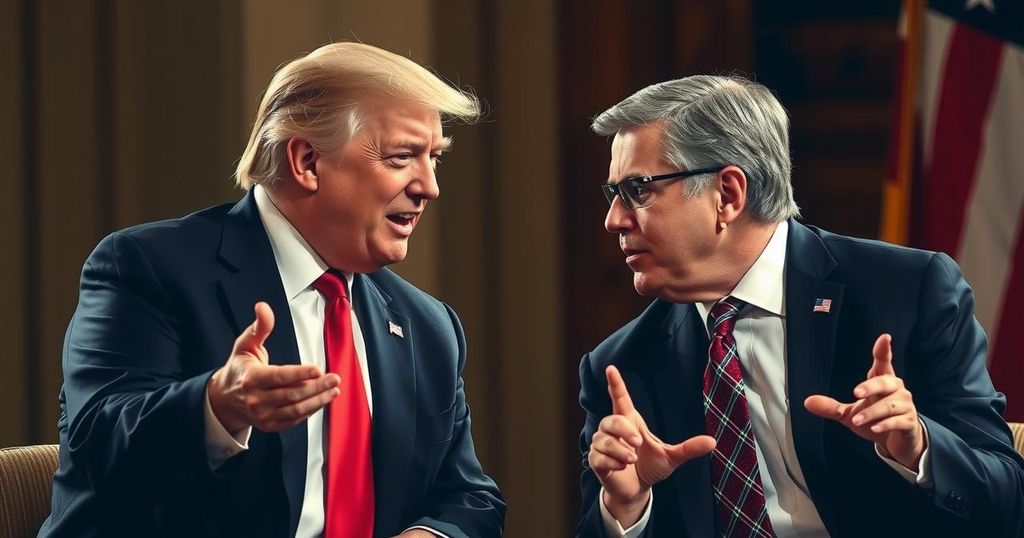Revitalizing American Innovation: A Call for Competitive Reform

This article discusses the decline of American technological leadership, highlighting how the U.S. has fallen behind China in critical technology sectors. It advocates for a new innovation policy focused on supporting startups and small businesses to regain competitiveness. The potential leadership of Donald Trump and JD Vance is explored as a means to reverse current adverse trends seen under the Biden administration, with a focus on revitalizing the U.S. innovation landscape.
As the 21st century progresses, the United States faces a critical challenge in maintaining its technological leadership, having slipped behind China in 37 of the 44 critical technologies that will shape future advancements. To recover its competitive edge, the U.S. must implement an innovative policy aimed at supporting startups and small businesses, which historically have been the engines of breakthrough innovations. Donald Trump and JD Vance are identified as key figures who can enact the necessary reforms to restore America’s position in the global innovation landscape.
Vance’s expertise in venture capital positions him to understand the hurdles faced by startups, which are crucial for fostering innovation. Conversely, the current Biden administration has exhibited a pattern of hostility towards emerging technologies, particularly in sectors such as blockchain, AI, and biotech, which has fostered an environment detrimental to American inventors. Notably, 2022 marked the first year in which the U.S. Patent and Trademark Office issued more patents to foreign inventors than to Americans, reflecting a worrisome trend in America’s innovation capacity.
The supply chains for essential technologies reveal a similar decline, with the U.S. producing a mere fraction of global chips and pharmaceutical ingredients, and China dominating the production of lithium-ion batteries. To reverse these declines, a collaborative effort between industry, academia, and government is imperative, emphasizing the significance of small businesses as traditionally the birthplace of significant innovations. Historical examples, such as Edison and Ford, underscore the potential for disruptive advancements rooted in small enterprises.
President Trump’s 2024 Republican platform prioritizes the support of small businesses and innovation as vital components of economic prosperity. Should he be re-elected, his administration would commit to reversing the adversities faced under the Biden administration, particularly in the realms of crypto and AI, while reinstating policies to invigorate manufacturing capabilities in the U.S.
Moreover, Vance’s initiatives, including the Rise of the Rest venture fund, highlight a commitment to democratizing access to venture capital across the country, thus addressing regional disparities in innovation and patent issuance. Under a future Trump administration, organizations such as the Small Business Administration and the National Institute for Standards and Technology (NIST) would regain focus on fostering innovation and simplifying patent processes to ensure that the full breadth of American ingenuity is nurtured and protected.
Historically, American innovation has been a cornerstone of the nation’s identity, dating back to the era of the Founding Fathers. Therefore, it is essential to cultivate a policy landscape that enables entrepreneurs and small businesses to thrive, restoring competitiveness and ensuring America retains its innovative spirit.
America stands at a crossroads, requiring decisive action to embrace reforms that empower and revitalize its innovation economy. It is time to make America competitive again.
At the close of the 20th century, the United States was the unquestioned leader in technology and innovation. However, entering the 21st century, China has overtaken the U.S. in numerous critical technologies—impacting not only economic prosperity but also national security. The shift toward supporting startups and small businesses is seen as essential for revitalizing American innovation, necessitating a reevaluation of current policies that have fallen short in fostering technological advancements. The stark decline in U.S. patents issued compared to foreign entities and the reliance on other nations for critical manufacturing further highlight the urgent need for reforms. This article discusses the implications of these trends and proposes potential solutions through political leadership under Donald Trump and JD Vance.
To conclude, the United States must urgently reestablish its standing in the global technological arena through comprehensive innovation policies that prioritize startups and small businesses. The decline in American patents and reliance on foreign production are troubling indicators necessitating immediate action. Transformative leadership under Donald Trump and JD Vance could steer the nation towards renewed investment in innovation, allowing for a revitalization of the American entrepreneurial spirit and enhancing competitiveness on the world stage. Effective collaboration between government, industry, and academia will be crucial for recovery and sustained progress in the innovation economy.
Original Source: fortune.com








